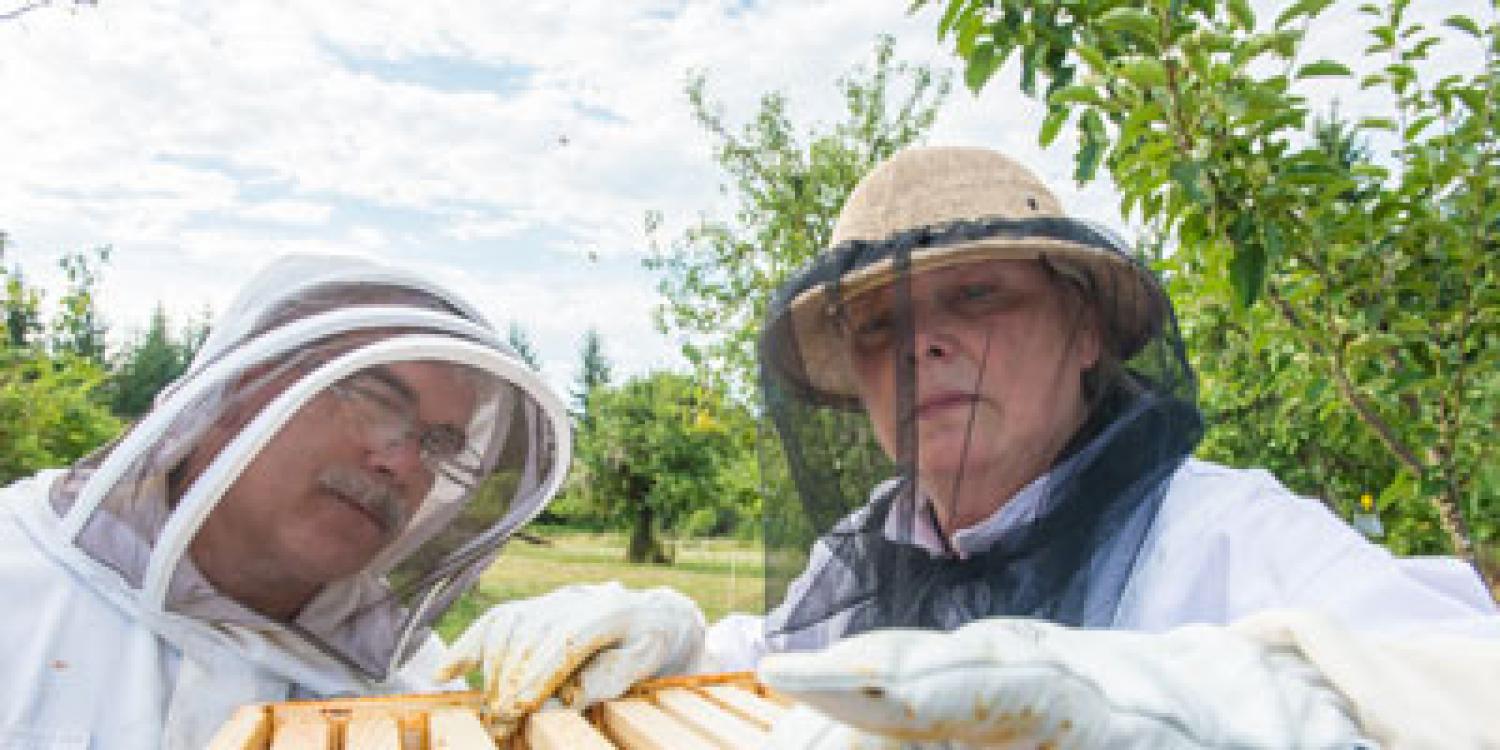
As honeybees struggle for survival, people are recognizing their role in pollinating key crops. They're increasingly interested in raising them in their backyards, but many don't know where to begin.
To give them a hand, the OSU Extension Service created the Oregon Master Beekeeper Program in 2012. Participants from across Oregon, and some in Idaho, are paired with mentors who help them learn how to harvest honey, treat for pests and diseases, and help their bee colonies survive the winter.
A collaborative effort between OSU Extension and the Oregon State Beekeepers Association, the program has three levels: Apprentice, Journey (advanced), and Master Beekeeper. Upon apprentice-level certification, a participant may enroll in the journey level, and ultimately the master level for advanced training. Graduates of the program are required to share their knowledge with other aspiring beekeepers, as well as reaching out to groups such as beekeeping clubs and schools.
As of the spring of 2019, 1,360 students have enrolled in apprentice training, 186 students have advanced to the journey level and 14 advanced to the master level.
In 2016, past participants in the program who were surveyed showed an improvement in knowledge of many beekeeping topics. Of the survey respondents, 85% said they had "learned a lot" or "a great deal" about pests and pathogens. Seventy-seven percent said they "learned a lot" or "a great deal" about seasonal colony management, and 76% said they "learned a lot" or "a great deal" about honeybee biology. Most respondents (70%) either began helping others solve beekeeping problems or increased their efforts in helping others.
On an economic level, the value of pollination and honey services provided by honeybee colonies that are maintained by trained Master Beekeeper program participants is estimated to be approximately $8 million in the coming years.